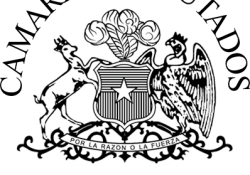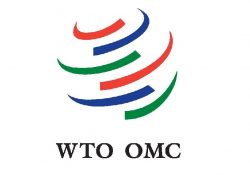Sakiko Fukuda-Parr, Chair Sakiko Fukuda-Parr is a Professor of International Affairs at The New School, New York. A development economist, her current work focuses on global policies for human development and human rights in diverse areas including poverty reduction, conflict… Continue Reading →
(More on government funded inventions here) 2015 2015: Virotas Biopharmaceuticals. KEI and Public Citizen ask NIH for safeguards in license for HCV patents, April 14, 2015. 2015: NIH refuses to give information about principals in company seeking exclusive license to… Continue Reading →
On January 15, 2018, PhRMA provided comments on the Colombian Resolution 5246, a public interest declaration for several drugs for the hepatitis c virus (HCV). A copy of the PhRMA letter is attached below. It is a combination of complaints… Continue Reading →
The Cámara de Diputados of the Chilean Congress has overwhelmingly passed a resolution calling on the President to advance the compulsory licensing request on HCV drugs made in March 2017 by patients, advocates including Innovarte NGO, and elected officials. The resolution, Number… Continue Reading →
On December 13, 2017, a joint statement on e-commerce was endorsed by Ministers representing 70 WTO members at the 11th WTO Ministerial Conference in Buenos Aires, Argentina (see below). KEI’s statement on the WTO e-commerce agenda is as follows: “There… Continue Reading →
On 12 December 2017, KEI delivered the following intervention to WIPO on pressures faced by Brazil and Colombia in using TRIPS flexibilities. 12 December 2017 SCP 27 Thank you Chair. We welcome the opportunity to provide inputs on the constraints… Continue Reading →
For more information, contact: (U.S.) James Love, KEI: james.love@keionline.org or +1 (202) 332-2670 (Chile) Luis Villaroel, Innovarte: info@innovarte.cl or +56 9 9827 9673 Chile FAQ What is happening in Chile with regard to HCV medicines and Xtandi, for prostate cancer?… Continue Reading →
In a hearing before the House Energy & Commerce Subcommittee on Health, Dr. Francis Collins, Director of the National Institutes of Health, explained the agency’s position on the Bayh-Dole rights and high drug prices. In the hearing, focused on the… Continue Reading →
Summary:
- A review of the “certificate of correction” to patents assigned to the Fred Hutchinson Cancer Center finds frequent failures to disclose federal funding on initial patent applications.
- When Fred Hutchinson reported no federal funding on patent applications, it was wrong 45 percent of the time, according to corrections later filed with the USPTO.
On October 19, 2017, I ran a query of the USPTO database of granted patents to identify patents granted to the Seattle based Fred Hutchinson Cancer Center.
Continue Reading →
On Wednesday, 4 October 2017, Chile delivered the following statement on the Report on The Standing Committee on the Law of Patents (SCP) at the WIPO General Assembly.
Gracias Sr. Presidente.
Quisiéramos felicitar el trabajo que el Comité de Patentes está llevando en temas diversos y balanceados, que han permitido su funcionamiento a lo largo de estos últimos años, privilegiando el diálogo técnico y experto sobre los diferentes puntos de la agenda.
Continue Reading →






